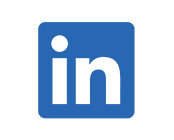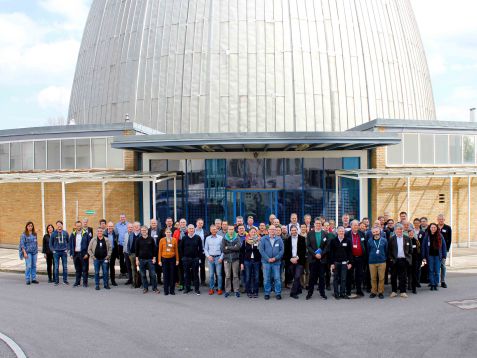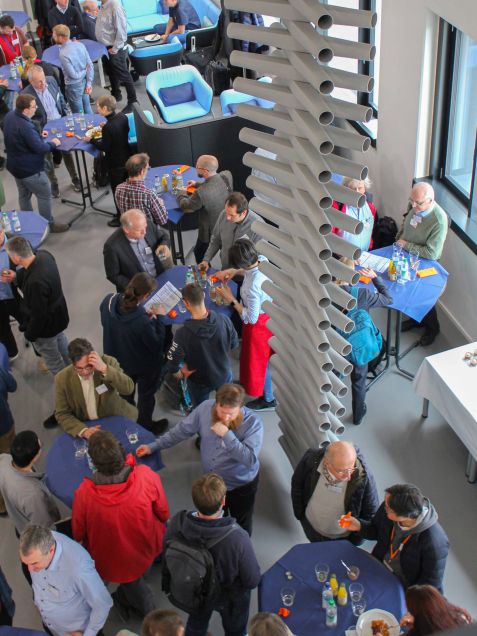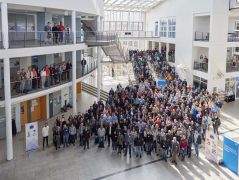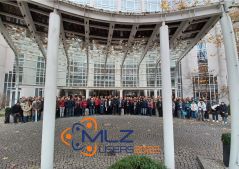MLZ is a cooperation between:
 > Technische Universität München
> Technische Universität München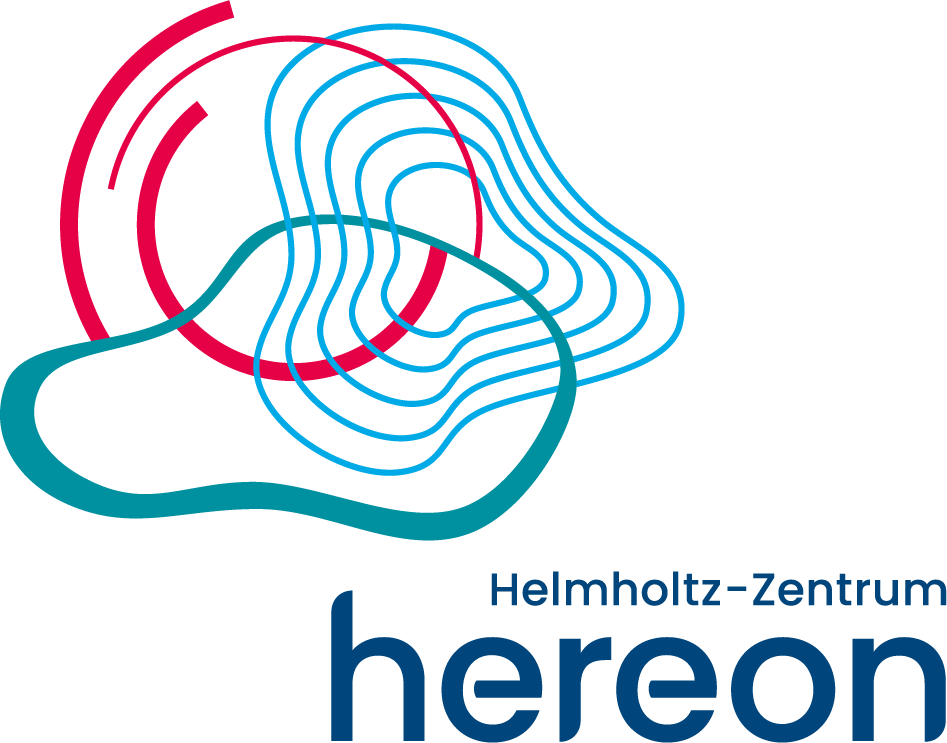 > Helmholtz-Zentrum Hereon
> Helmholtz-Zentrum Hereon
 > Forschungszentrum Jülich
> Forschungszentrum Jülich
MLZ is a member of:
 > LENS
> LENS > ERF-AISBL
> ERF-AISBL
MLZ on social media:

MLZ (eng)
Lichtenbergstr.1
85748 Garching
11.05.2023
MORIS Workshop at the MLZ: Instruments on the Move
“Science is moving,” said Dr. Peter Müller-Buschbaum, scientific director at the Heinz Maier-Leibnitz Zentrum (MLZ) and the Research Neutron Source Heinz Maier-Leibnitz (FRM II), at the start of a workshop where 85 participants discussed the planned MORIS modernization program at the MLZ. In 50 presentations, the scientific use of neutrons from the user side and the currently discussed project ideas for the upgrade of the MLZ instrument portfolio were presented.
The researchers at the Heinz Maier-Leibnitz Zentrum making good use of the unintentionally neutron-free time was made very clear at the so-called MORIS User Workshop on April 26 and 27. MORIS stands for MLZ-Organized Refurbishment of the Instrument Suite. The workshop in Garching was the first detailed presentation of project ideas for a refurbishment and upgrade program to the user community. These ideas, which have been developed internally at MLZ over the past year, range from major renovation projects to concepts for new instruments to further development of techniques and the rehearsal environment.
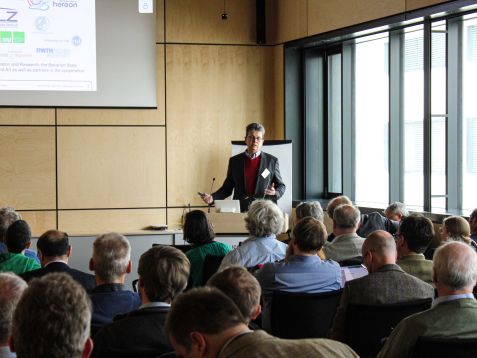
"We want feedback from the user community," said Prof. Peter Müller-Buschbaum during his welcoming speech. © Reiner Müller, FRM II / TUM
Goal: Remain competitive and attractive
“We want to keep our scientific instruments competitive and attractive,” said the MLZ director from Helmholtz-Zentrum Hereon, Prof. Dr. Martin Müller, describing the goal of the workshop in his introductory speech. “And we want feedback from the user community,” added Peter Müller-Buschbaum in his welcoming speech. “After all, the users should benefit from the innovations.” Plans are being made for the MLZ well beyond 2025. That’s because new scientific interests also require new instruments or the adaptation and renewal of existing instruments, the two directors said.
Revising the program with feedback
Researchers presented their projects in plenary lectures and a total of five parallel sessions for different instrument classes. The users complemented this with scientific examples that showed the scientific motivation as well as the resulting instrumentation requirements. Between presentations, there was plenty of time for conversation over lunch, coffee and a shared dinner. “We discussed a lot and are now taking the feedback from the users with us. Over the next few months we will revise our program,” says workshop co-organizer, senior scientist Dr. Wiebke Lohstroh. “The workshop was well received by our users, and we have stimulated discussion internally.”
Presentation to the steering committee
The goal is to develop a consolidated MORIS project proposal by November that incorporates user feedback as well as feedback from the MLZ Advisory Committees, Instrumentation Advisory Committee and Scientific Advisory Board. The resulting paper will then be presented at the end of the year to the MLZ steering committee with representatives from politics and partners of the MLZ.
MLZ is a cooperation between:
 > Technische Universität München
> Technische Universität München > Helmholtz-Zentrum Hereon
> Helmholtz-Zentrum Hereon
 > Forschungszentrum Jülich
> Forschungszentrum Jülich
MLZ is a member of:
 > LENS
> LENS > ERF-AISBL
> ERF-AISBL
MLZ on social media:


